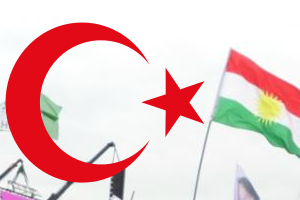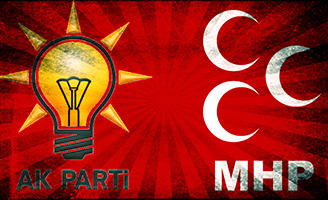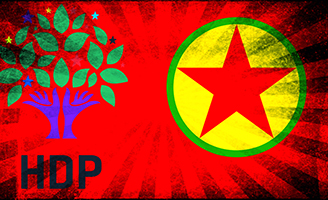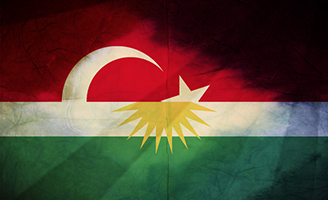Turkey’s Kurds and the Post-election Political Landscape
By Gareth Jenkins (vol. 8, no. 13 of the Turkey Analyst)
The Turkish general election of 7 June stripped the ruling Justice and Development Party (AKP) of its parliamentary majority for the first time since November 2002 and dealt a devastating blow to President Recep Tayyip Erdoğan’s hopes of replacing the country’s parliamentary system with an autocratic presidential one in which all political power was concentrated in his own hands. But, even though the election was an undoubted triumph for the pro-Kurdish Peoples’ Democratic Party (HDP), it has also left the Kurdish nationalist movement facing a number of challenges.

Turkish Democracy Is Not Out of the Woods
By Halil Karaveli (vol. 8, no. 12 of the Turkey Analyst)
The immediate effects of Turkey’s June 7 election was that the ruling Justice and Development party (AKP) lost its majority and President Erdoğan was forced to put his plans for a presidential system on hold, at least for the moment. Yet the prospects for Turkish democracy are not necessarily any brighter today. The most likely outcome is a coalition between the AKP and the rightist Nationalist Action Party (MHP). That is the preferred outcome for “conservative” business interests, who challenge “secular” business interests and want to continue to use state power to get their hands on a bigger share of capital. Their interests ensure that the AKP will remain on its confrontational track; that is the principal dynamic behind Turkey’s drift toward authoritarian rule, and it is far from having been halted.

The Kurdish Surge in Turkey’s Election: A Boost in Backing for the PKK
By Aliza Marcus (vol. 8, no. 12 of the Turkey Analyst)
Kurdish voters abandoned the ruling AKP in Turkey's national elections, propelling the Kurdish HDP into parliament and giving Kurdish nationalist demands a new legitimacy. Earlier, critics could argue the PKK did not really represent the majority of Kurds in Turkey, but that argument is getting weaker by the day. The HDP's win can be ascribed, in large part, to a boost in backing for the PKK. The question is whether the parties and people who want more rights and freedoms will realize that Kurdish rights, autonomy and likely freedom for Abdullah Öcalan must be part of this to truly make Turkey into a liberal place.

The Rising Bar: Prospects for the Kurdish Issue after the Turkish General Election
By Gareth Jenkins (vol. 8, no. 10 of the Turkey Analyst)
In the run-up to the Turkish general election of June 7, most attention has been focused on whether or not the pro-Kurdish Peoples’ Democracy Party (HDP) will cross the 10 per cent threshold necessary for representation in parliament and prevent the ruling Justice and Development Party (AKP) from securing a large enough majority to change the constitution and concentrate all political power in the hands of President Recep Tayyip Erdoğan. But the election is also likely to have a profound effect on the future of the Kurdish issue itself.

Creeping Shadows: The Repercussions of the AKP’s Aggressive Policy towards the HDP
By Gareth Jenkins (vol. 8, no. 8 of the Turkey Analyst)
In recent weeks, Turkey’s ruling Justice and Development Party (AKP) has pursued an increasingly aggressive policy towards the pro-Kurdish Peoples’ Democratic Party (HDP) in the hope of pushing the party below the 10 per cent national threshold in the June 7, 2015 general election while simultaneously preventing Turkish nationalists amongst the AKP’s own voters from defecting to the Nationalist Action Party (MHP).






